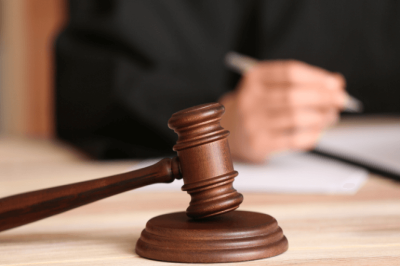Intellectual Property (IP) disputes arise when conflicts occur over the ownership, use, infringement, or protection of intellectual property rights. Intellectual property encompasses patents, trademarks, copyrights, trade secrets, and other intangible creations of the mind. These disputes can occur between individuals, businesses, or organizations and often require legal intervention to resolve. Here are key aspects of intellectual property disputes:
Types of Intellectual Property Disputes:
Patent Disputes: Conflicts related to the validity, infringement, or licensing of patents, which grant exclusive rights to inventors for their inventions.
Trademark Disputes: Conflicts involving the use, registration, or infringement of trademarks, which protect symbols, names, and slogans identifying goods or services.
Copyright Disputes: Conflicts concerning the use, reproduction, distribution, or ownership of original literary, musical, and artistic works protected by copyright.
Trade Secret Disputes: Conflicts involving the misappropriation or unauthorized use of confidential and proprietary information that provides a competitive advantage.
Unfair Competition: Disputes regarding false advertising, deceptive trade practices, or other unfair tactics that can create confusion in the marketplace or harm competitors.
Causes of Intellectual Property Disputes:
Infringement: Unauthorized use, reproduction, or distribution of someone else’s intellectual property without permission.
Licensing and Contract Disputes: Conflicts arising from violations or misunderstandings regarding licensing agreements, royalties, or contractual obligations related to intellectual property.
Ownership Disputes: Conflicts regarding the rightful ownership or authorship of intellectual property rights, often arising from joint ventures or collaborations.
Domain Name Disputes: Conflicts related to the registration, use, or ownership of internet domain names that may infringe on trademarks or trade names.
Resolution of Intellectual Property Disputes:
Litigation: Legal action filed in a court of law to protect or defend intellectual property rights, seek damages, or resolve disputes through judicial proceedings.
Alternative Dispute Resolution (ADR): Methods such as mediation, arbitration, negotiation, or settlement discussions to resolve disputes outside of court, often faster and more cost-effective than litigation.
Cease and Desist Letters: Formal letters sent by the rights holder to the alleged infringer, demanding the cessation of infringing activities and sometimes threatening legal action.
Legal Remedies and Damages:
Legal remedies for intellectual property disputes may include injunctions (court orders to stop certain actions), monetary damages, accountings of profits, and attorney’s fees.
International Intellectual Property Disputes:
Cross-border disputes involving intellectual property rights and international laws, often resolved under international agreements or through specialized international intellectual property organizations.
Prevention and Risk Management:
Proactive strategies to minimize the risk of disputes, including conducting IP audits, drafting clear contracts, registering intellectual property, and implementing security measures to protect trade secrets.
Resolving intellectual property disputes requires a deep understanding of IP laws, an appreciation of the unique aspects of each case, and often the expertise of specialized intellectual property attorneys. Timely legal intervention and strategic approaches are essential to protect intellectual property rights and prevent financial and reputational damage.
we are here to help. Our dedication to providing personalized service and attention to detail ensures that your case is handled with the care and expertise it deserves. Thank you for choosing Meenuu pandey & Associates, we look forward to serving your legal needs.













Meenuu pandey & Associates © 2023 | Developed by Shivwebsindia.com